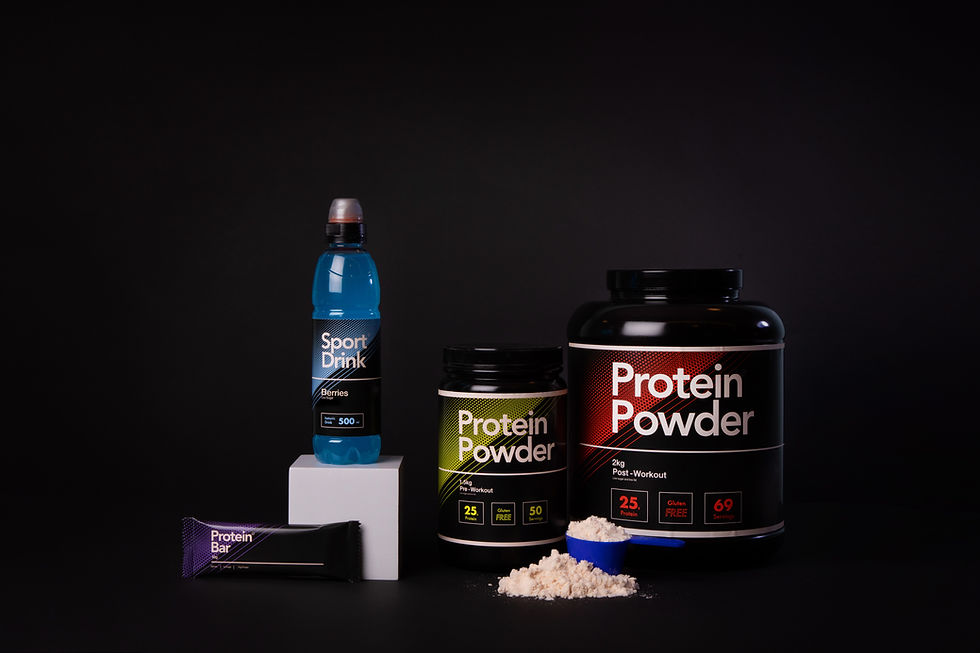Over 28% of dietary supplements contain undisclosed & banned substances: Dietary Supplement Safety.
- Neil Livemore

- May 17, 2022
- 3 min read
Updated: Jun 2, 2025

Navigating Supplement Safety: What You Need to Know
Are you confident the supplements you consume are low risk for undisclosed substances? Dietary supplement safety is of huge importance to all who use them. A recent study found that over 28% of dietary supplements contain undisclosed substances. These hidden ingredients can include harmful compounds like sibutramine and anabolic steroids, which can have significant implications for your health and performance.

What does this mean about?
While the recent findings are alarming, the potential risks of dietary supplements have long been a concern for experts in sports nutrition. The presence of undeclared substances underscores the importance of supplement safety for everyone, from athletes to the general public.
For athletes, consuming supplements with undisclosed ingredients can lead to inadvertent doping, resulting in serious consequences such as bans from competition. Beyond the sporting arena, these unknown substances pose potential health risks for all consumers. It is essential that supplement labels accurately reflect the product's contents to protect the health and well-being of the public.
Why does this happen?
The quality, identity and purity of the products are not regulated. Manufacturers are not required to provide information about safety before introducing supplements on the market – they are free to establish their own practice guidelines. This can often mean dietary supplements are adulterated and contaminated or fail to contain claimed active ingredients.
Studies have found that many supplements contain undeclared compounds like prohormones or anabolic androgenic steroids (AAS).
In a study of 634 dietary supplements from 15 different countries (Geyer and team 2004), 14.8% of supplements showed anabolic steroid concentrations from up to 190 μg/g.
Baume et al. analysed the purity of supplements from different websites: 103 dietary supplements, including stimulants, amino acids, creatine, and others. They found that 18% of the analysed dietary supplements contained undeclared steroids or their precursors.
Although supplements are associated with health, they can have adverse outcomes – in the USA, 23,000 emergency visits are due to dietary supplement-related adverse events.
So, what can we do to reduce the risk?
A food-first approach is always recommended, although often it is a “food first, but not always food only” (FFNAFO) approach where we may not be able to reach targets through food alone, or where convenience is needed. Many supplements are not beneficial and do not have any credible evidence despite the marketing claims and online noise. However, some supplements may work for:
A specific population.
At a specific time
For a specific goal
When it may be tricky to get from food.
Secondly, it is important to "Assess the Need, Assess the Risk, Assess the Consequence" (ANARAC).,
1) Use a simple safe supplementation flow chart to make decisions.

2) Use batch-tested supplements to reduce the risk of banned/undisclosed supplements (and log the batch numbers if you are an athlete). Quality assurance programmes are designed specifically for the sports nutrition industry. It certifies that supplements have undergone rigorous testing for banned substances by a world-class anti-doping laboratory. It does not reduce all risk but reduces as much as possible and is the safest choice after using food choices to meet targets where possible.
In the UK, these will be Informed Sport-tested supplements (that include the Informed Sport logo). Their website (sport.wetestyoutrust.com) also has tested supplements added to its list.
In the USA NSF-certified for sport.
3) Use a qualified SENr sports nutritionist or sports dietician who can help advise on using supplements for your specific needs, which can be achieved through foods and which supplements are flushing your money down the drain.
4) Complete a free online course available from UK anti-doping to help educate on clean sport and safe supplementation.
Have more questions? You can contact us on our form below!
References:
How can we help support your goals?
Individual consultancy
Nutritional support and development process
Assessments
Physiological testing
Team support
Team education
Mentoring
Interested in our primary services?
Use the contact form below to request more information or arrange a free phone call to discuss your needs.







This post is a crucial wake-up call for anyone navigating the world of sports and dietary supplements. The statistic that over 28% of supplements may contain undisclosed substances is deeply concerning—and underscores the urgent need for transparency and rigorous quality control. At Nutrikal, we’re committed to raising the bar in the supplements business, especially across private label supplements Europe. Our formulations are developed with full ingredient disclosure, third-party testing, and strict compliance with EU safety standards—because trust isn’t just a value, it’s a responsibility.